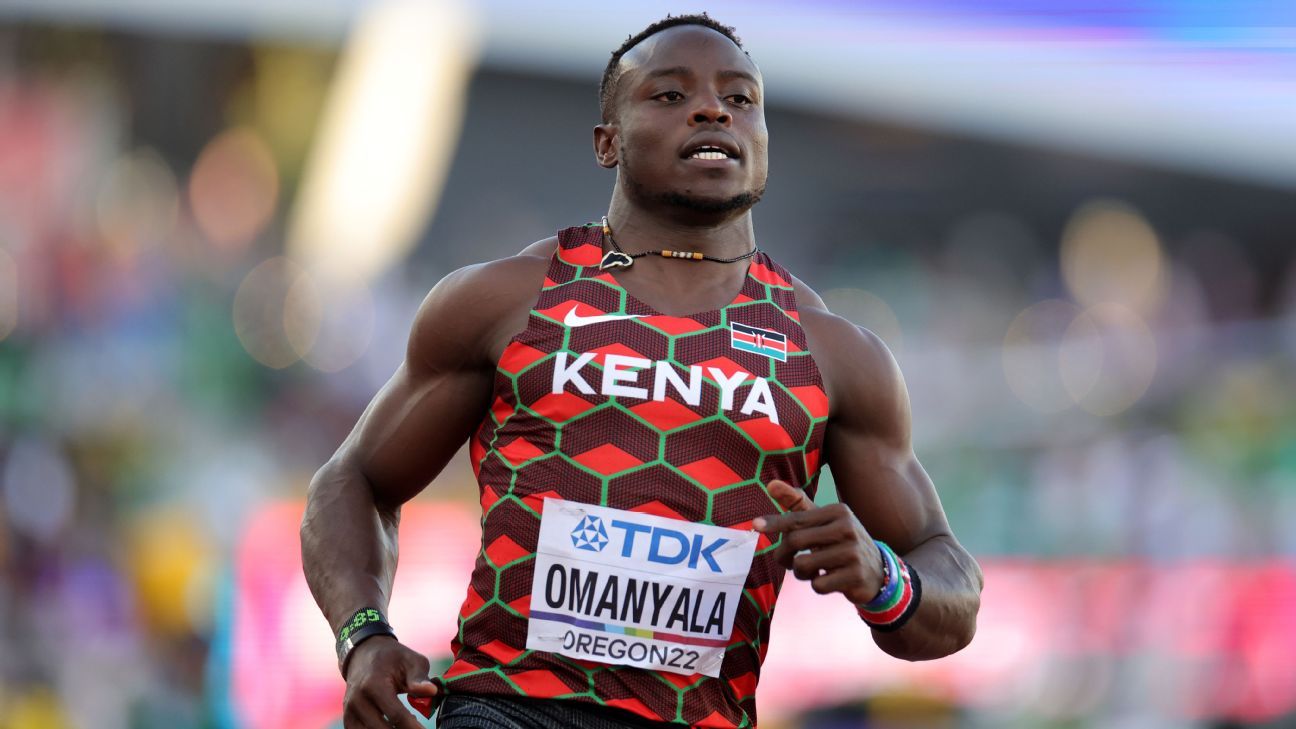
EUGENE, Ore. — For 10.10 seconds, Ferdinand Omanyala forgot all about the visa issues that almost kept him home, the jet lag from an international flight and his mad dash from the airport to the track just to make it to the starting line in time.
Once the Kenyan sprinter crossed the finish line, though, the exhaustion hit him hard.
Next stop: bed.
But at least Omanyala can sleep easy Friday night knowing this — he has moved on to the semifinal round of the 100 meters at the world championships.
“I never knew I was tired until I ran that race,” said Omanyala, who advanced on a night when Fred Kerley turned in the fastest time at 9.79 seconds. “It was disappointing [the visa issues]. But you have to put the challenges aside. You have to come here and run.”
It was a race just to make it to his race due to a delay in securing his visa. He was actually resigned to sitting this one out.
But his paperwork was approved at the final hour and his team quickly scrambled to book a flight. It was quite a trek, too — flights from Nairobi to Doha, then to Seattle, and finally to Eugene and one last ride to Hayward Field. All in all, he spent about 20 hours on planes. That doesn’t include the layovers.
He did receive an upgrade — to business class. That made sleep a little easier. No running down the aisles, though, as a way to warm up. He drank plenty of water.
Omanyala arrived at the track about two hours before his 100 race. He was placed in the seventh of seven heats, buying him some extra time to stretch out. He finished third in his heat, which was good enough to move him through to the semis.
“It’s tiring and it’s a torture, too, mentally,” Omanyala said of his ordeal. “If you’re not strong enough, you will crumble.”
This is hardly the typical routine for Omanyala, who likes to arrive about three or four days before an event.
“This was just different,” he said. “This was a first. I’ve never had such a situation before.”
His case was one of about 375 that had been flagged to local organizers, World Athletics and the U.S. Olympic and Paralympic Committee. World Athletics officials said that of the 5,500 participants and officials coming to Eugene, less than 1% still had visa issues on the eve of the championships.
That’s far too many in Omanyala’s eyes. He’s hoping visa issues aren’t a holdup when the next major meet comes to America — the 2028 Olympics in Los Angeles.
“They need to learn from this and do it better next time,” he said.
His rivals were certainly impressed with his quick turnaround. It’s a risk-reward proposition, too. Long plane rides and not enough water are a combination for pulling a hamstring. American Marvin Bracy, who won the first heat, had a similar situation develop before a Diamond League race in Europe. He opted not to go.
“Because we know how dangerous that can be,” Bracy said. “To come out here and compete at that high of a level, it’s kind of scary.”
Omanyala did receive a lift from the applause at Hayward Field.
“It’s nice when you see so many fans cheering you on,” said Omanyala, whose season-best time is 9.85 seconds. “I felt elevated for sure.”
As he chatted in the mixed zone, a Netherlands sprinter sauntered past him and simply: “Hero.”
A tired one at that.
